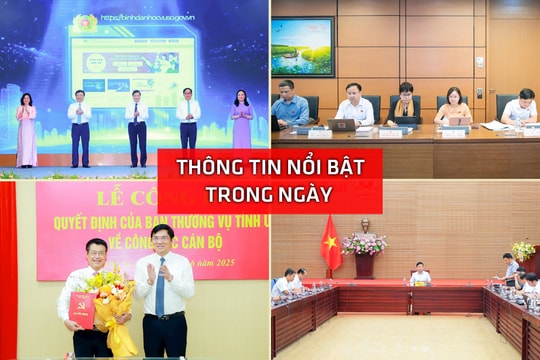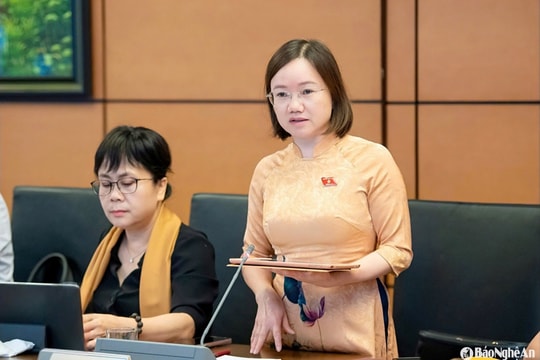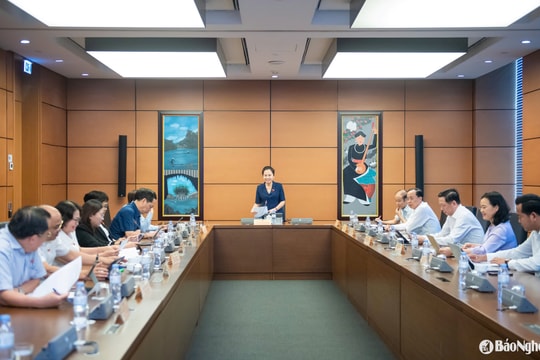Keep gender biased products out of the media
(Baonghean.vn) - On the morning of November 9, the National Assembly discussed in the hall about the implementation of national goals on gender equality. On the sidelines of the meeting, reporters talked with delegate Dinh Thi Kieu Trinh (Nghe An delegation) about this issue.
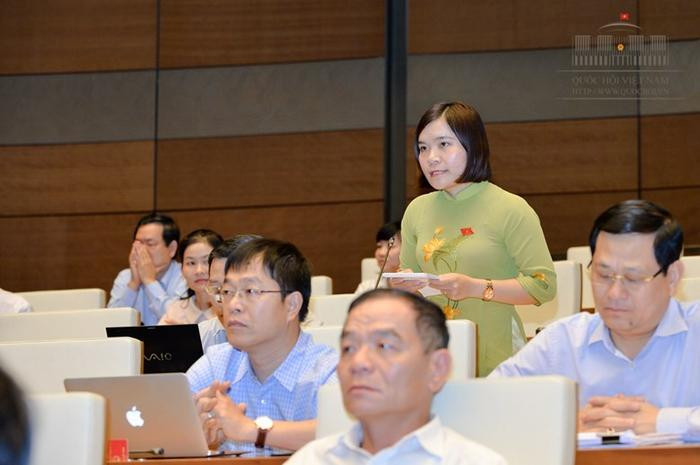 |
| Delegate Dinh Thi Kieu Trinh, National Assembly delegation of Nghe An. Photo: Quochoi.vn |
Reporter:How do you evaluate the results of implementing the Law on Gender Equality over the past 10 years?
Ms. Dinh Thi Kieu Trinh:After 10 years of implementing the Law on Gender Equality, the results of gender mainstreaming in economic, political and social life have had many positive changes and achieved many goals and targets of the National Program on Gender Equality as affirmed by the Government.
In particular, it is necessary to mention the role and strong participation of Party committees, authorities and mass organizations and the great efforts of the Department of Labor, Invalids and Social Affairs in implementing the task of state management on gender equality and the activities of the Committee for the Advancement of Women, which have contributed to promoting gender equality in all aspects from communication to raising awareness, changing behaviors on gender equality, and organizing the development of highly practical gender equality models.
The team of cadres working on gender equality, female cadre work and especially activities for female candidates for the National Assembly, People's Councils at all levels... have contributed to increasing the proportion of women participating in elected bodies in recent times...
Reporter:So, according to you, what are the remaining problems and obstacles in implementing the national goal of gender equality?
Ms. Dinh Thi Kieu Trinh:Through the practice of gender equality work, I see that the service system for gender equality work has not yet developed; the integration of gender equality issues has not yet been implemented in a substantial and correct manner, especially in the process of developing legal documents and socio-economic development plans;
The Decree guiding the implementation of the Law, Decree No. 55/2009 of the Government regulating administrative sanctions for violations of gender equality, is still difficult to apply in practice; there are no sanctions strong enough to compel agencies and units to carry out training, fostering, planning and appointing female cadres according to regulations and to handle units that do not strictly comply with the provisions of the Law.
Therefore, although the number of female cadres holding key positions in Party committees, governments, sectors and organizations has increased, it is not commensurate with the potential of female cadres, and the achievement rate is still low compared to the set target.
Some occupations have a large female workforce and many areas related to policy making do not have female officials in key leadership positions. The majority of female officials in leadership and management positions are deputy leaders...
Gender education and gender equality have been integrated but not systematically and clearly in the official education program of the national education system; nor have they been demonstrated regularly and widely in the community.
In universities, colleges, vocational high schools and vocational training schools, although gender content is integrated, it is not yet in the main curriculum, only in the form of integration into the political program at the beginning of the course and extracurricular activities.
The textbook system at all levels still contains gender-discriminatory and gender-biased content and images, making it difficult to transform awareness and behavior about gender and gender equality.
In the current context, women and girls are still fundamentally disadvantaged and weaker than men, so it is easy to lead to the misconception that gender equality is a women's activity and not much attention is paid to men.
Gender stereotypes still exist quite commonly among the people, especially the issue of gender imbalance at birth is currently a hot issue, posing many challenges for society….
Reporter:Based on the above difficulties and problems from reality, what recommendations do you have to send to the National Assembly?
Ms. Dinh Thi Kieu Trinh:I propose that we continue to improve the legal system and policies to ensure the principle of gender equality in terms of age in training, promotion, appointment, rotation, etc. to promote women's participation in leadership and management at all levels and in all sectors.
Develop a mechanism to specifically regulate the proportion of women in the planning source of management and leadership staff, in enrollment targets for training courses at political schools, state administrative management schools, and postgraduate training courses.
Research on integrating gender equality content into teaching at all levels, grades, and majors, in the political school system; in the upcoming issuance of new textbooks, there must be consideration and research to edit content and images that contain gender discrimination and prejudice to overcome the limitations mentioned above to gradually change awareness and transform behavior towards achieving real gender equality.
Ministries and sectors need to coordinate to develop a system of indicators on gender mainstreaming in policy making and socio-economic development planning so that localities have a basis for implementation.
Add the Female Business Ownership Index to the National Business Registration Information Network to facilitate monitoring and application.
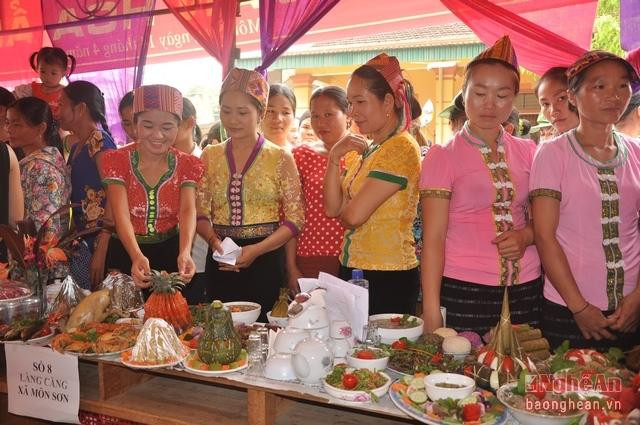 |
| Thai women in Muong Qua, Con Cuong district participate in the culinary festival of ethnic minorities in the area. Photo: Archive |
Reporter:So, in your opinion, what solutions are needed to further improve the effectiveness of implementing the Law on Gender Equality locally?
Ms. Dinh Thi Kieu Trinh:I think it is necessary to increase local support in terms of funding and techniques to train specialized staff to do gender equality work at all levels, especially opening specialized training courses for different subjects.
Mass media agencies also need to strengthen propaganda on gender equality, diversify the image of women with different roles and positions in the renovation period; strictly control and prevent advertising products with gender-biased content and images in the media; organize inspections, audits, and reviews of printing and publishing establishments to prevent and handle the publication and distribution of products that violate the Law on Gender Equality.
On the other hand, authorities need to increase the provision of reproductive health care services for women and men, especially in remote, isolated, disadvantaged areas, export processing zones, industrial parks, enterprises employing many female workers, and in areas at risk of gender imbalance at birth.
Expand the network of health consultations for men; promote the mobilization of resources for gender equality work, integrate gender budgets into sectors and fields, and ensure staff to fully implement assigned tasks.
In particular, further enhancing the strong commitment of the entire political system in implementing gender equality, changing the positive attitude and responsibility of leaders at all levels and sectors is a basic premise to promote the quality and effectiveness of gender equality work in a substantive manner./.
Reporter:Thank you!
PV- CTV
| RELATED NEWS |
|---|

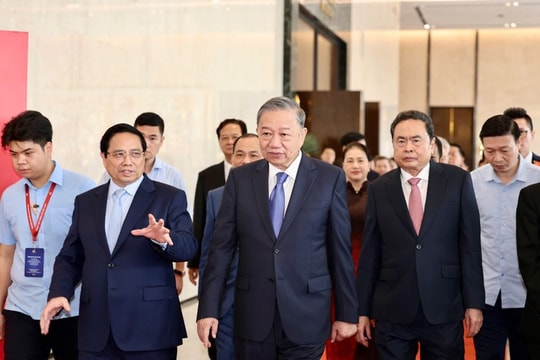
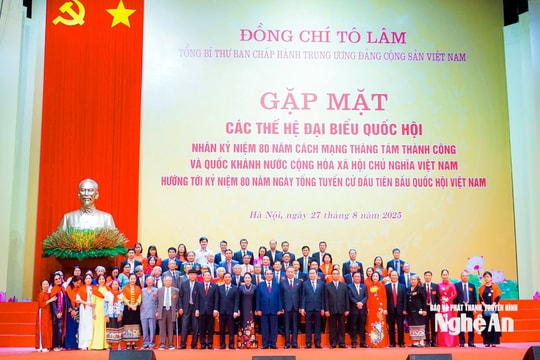
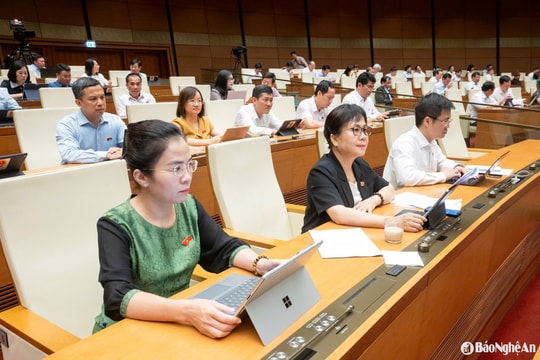
.jpg)
